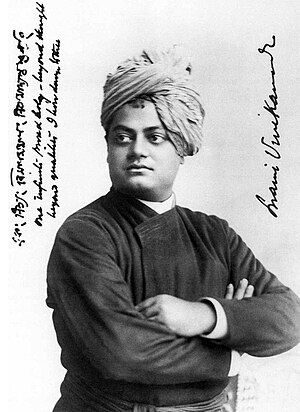 Image via Wikipedia
Image via Wikipedia
Acharya Vinoba Bhave Acharya Vinoba Bhave was a freedom fighter and a spiritual teacher. He is best known as the founder of the 'Bhoodan Movement' (Gift of the Land). The reformer had an intense concern for the deprived masses. Vinoba Bhave had once said, "All revolutions are spiritual at the source. | |
| Baba Amte From a child born with a silver spoon in his mouth, Baba Amte later transformed his life into a social activist. He devoted his entire life to serve the downtrodden people of the society. He left his lucrative profession to join India's struggle for independence. Founder of Anandvan | |
| Dr. B. R. Ambedkar Dr B R Ambedkar, popularly known as Babasaheb Ambedkar, was one of the architects of the Indian Constitution. He was a well-known politician and an eminent jurist. Ambedkar was the main inspiration behind the inclusion of special provision in the Constitution of India for the development of Schedule Caste people. Dr. Ambedkar was the Law Minister of India from 1947 to 1951. He took part in the Satyagraha of untouchables at Nasik in 1930 for opening the Hindu temples to them. Dr. Ambedkar was emancipator of the 'untouchables' and crusader for social justice. This liberator of the down trodden was affectionately called "Babasaheb". He was posthumously awarded 'Bharat Ratna' in the year 1990. | |
| Ishwar Chandra Vidyasagar Ishwar Chandra Vidyasagar is considered as one of the pillars of Bengal renaissance. In other words, he managed to continue the reforms movement that was started by Raja Rammohan Roy. Vidyasagar was a well-known writer, intellectual and above all a staunch follower of humanity. He brought a revolution in the education system of Bengal. | |
| Jyotiba Phule Jyotiba Phule was one of the prominent social reformers of the nineteenth century India. He led the movement against the prevailing caste-restrictions in India. He revolted against the domination of the Brahmins and for the rights of peasants and other low-caste fellow. | |
| Swami Vivekananda Swami Vivekananda was one of the most influential spiritual leaders of Vedanta philosophy. He was the chief disciple of Ramakrishna Paramahansa and was the founder of Ramakrishna Math and Ramakrishna Mission. Swami Vivekananda was the living embodiment of sacrifice and dedicated his life to the country and yearned for the progress of the poor, the helpless and the downtrodden. | |
| Swami Dayanand Saraswati Dayanand Saraswati was one of the most radical socio-religious reformers in the history of India. Swami Dayanand Saraswati was the founder of Arya Samaj and propagated egalitarian approach of the Vedas at a time when widespread casteism was prevalent in the society. | |
| Raja Ram Mohan Roy Raja Ram Mohan Roy is known as the 'Maker of Modern India'. He was the founder of the Brahmo Samaj, one of the first Indian socio-religious reform movements. He played a major role in abolishing the role of Sati. Raja Rammohan Roy was a great scholar and an independent thinker. |
| Ramakrishna Paramhansa Ramakrishna Paramhansa was one of the foremost Hindu spiritual leaders of the country. His teachings are still deeply revered by the people. He also played a key role in the social reform movement in Bengal in 19th century. |
| Medha Patkar Medha Patkar is a well known social activist of India. She was born on 1st December in the year 1954. Prior to becoming a social reformer, she completed her M.A. in Social Work from Tata Institute of Social Sciences (TISS).She left Ph. D. in the midst and got actively involved in the agitations conducted by tribals and peasants of Maharashtra, Madhya Pradesh and Gujarat. |
| Shanta Sinha Shanta Sinha, the Ramon Magsaysay award winner, has recently been appointed for the post of chairperson of the National Commission for Protection of Child Rights. She is the founder secretary trustee of the Mamidipudi Venkatarangaiya (MV) Foundation, Secunderabad. |
| Shahu Chhatrapati Shahu Chhatrapati was the Maharaja or the king of the Indian princely state of Kolhapur. Also known by the name of Rajarshi Shahu, he was known to be a great social reformer of his time. Shahu Chhatrapati was born on 26 June in the year 1874 as Yeshwantrao Ghatge. |
| ANNIE BESANT Founder of Theosophical Scoiety,She founded the Home-Rule League. She revived the Theosophical Society. In 1915, she chaired the Calcutta session of the Indian National Congress. She also edited 'New India'. She established Indian Boy Scouts Association. She received a prestigious award for her work for scouts. She also studied Hinduism. India is indebted to Annie Besant for her immeasurable work for freedom struggle, educational advancements and social reforms. |
Sant Kabir---The hallmark of Kabir's works consists of his two line couplets, known as the 'Kabir ke Dohe'. The Dohas reflect the deep philosophical thinking of the poet saint. Sant Kabir believed in the Vedantic concepts of atman. He always advocated the Impersonal Aspect of God (Nirguna) |

